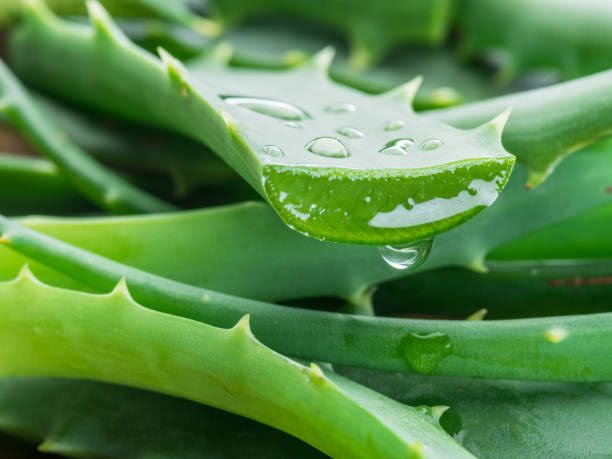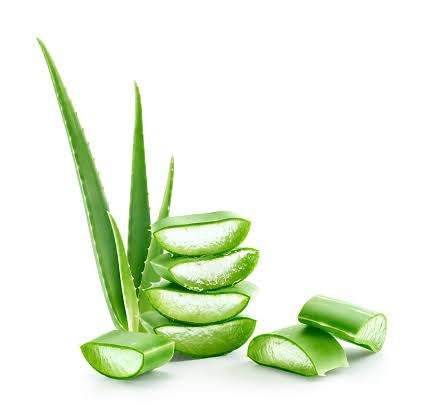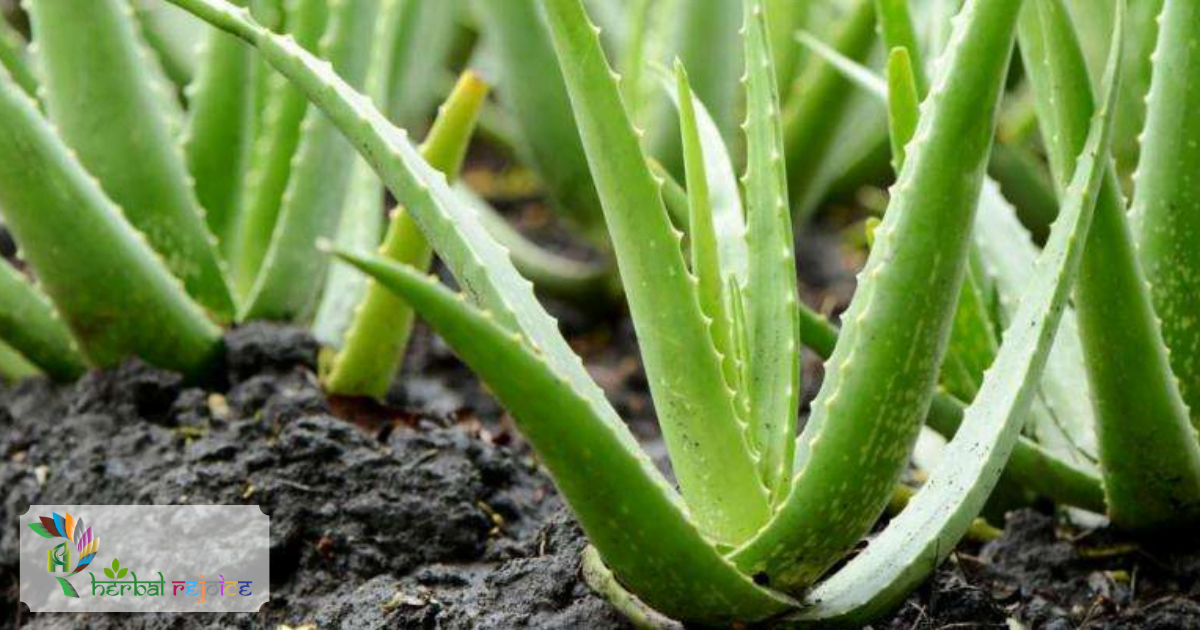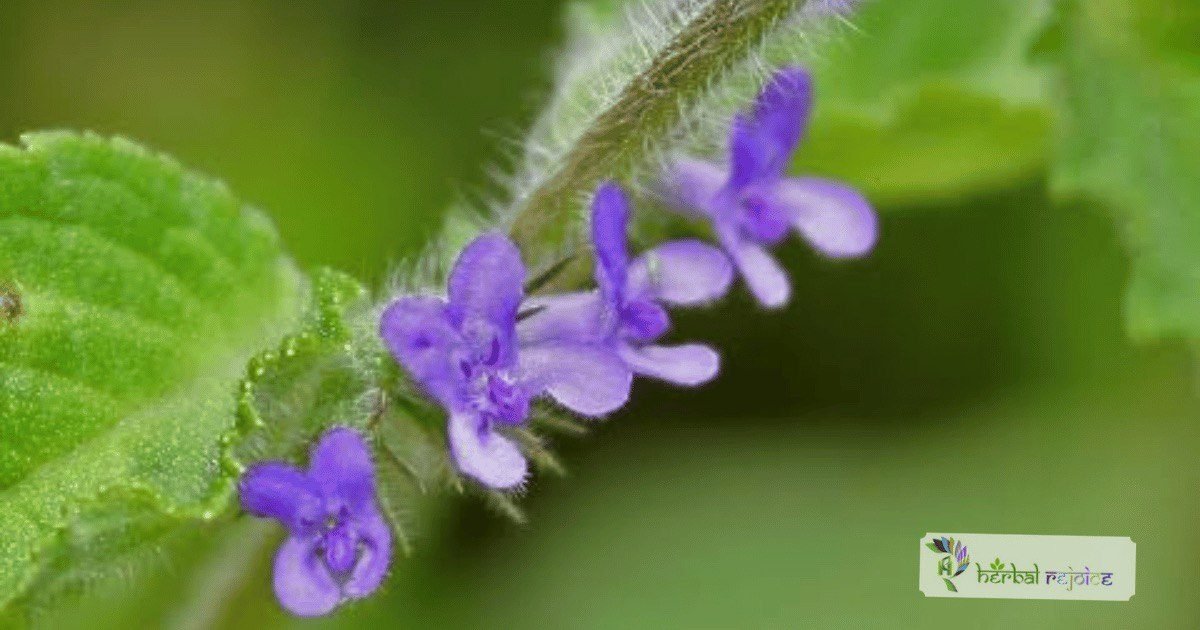Welcome to Herbal Rejoice, your go-to blog for healthy living and natural remedies. Today, we are thrilled to introduce you to the incredible Aloe Vera, a succulent herb with many health benefits that have been revered for thousands of years! Aloe Vera has have been used to treat various skin conditions, including pimples, acne, also a good laxative. The plant’s juice has been used to address menstrual-cycle concerns.
Exploring the Aloe Vera Plant: A Marvel of Nature
Aloe Vera Mill., also known as “kumari” in Ayurveda, is a remarkable short-stemmed herb with thick green leaves arranged in a rosette formation. Its unique characteristics and versatility have made it an essential component of traditional medicine systems worldwide.
Unveiling the Healing Power of Aloe Vera
The ancient civilizations of Greece, Mesopotamia, and Egypt recognized the extraordinary healing properties of Aloe Vera. Its medicinal qualities have been treasured across cultures and generations, earning it the name “the vitality of youth” in Ayurveda.
Aloe Vera’s Botanical and Phytochemical Profile
The fleshy leaves of Aloe Vera are easy to identify with their spiny margins. The plant contains a thick, colourless juice that is abundant in valuable phytoconstituents such as aloin, aloe-emodin, aloe resin A-C, aloesone, and more. These constituents contribute to the herb’s numerous health benefits, making Aloe Vera an indispensable part of natural medicine.
A Panacea of Traditional Medicinal Uses

A Soothing Elixir: Aloe Vera has been used to treat various skin conditions, including pimples, acne, and mouth ulcers, thanks to its soothing and healing properties. It has found its way into cosmetic preparations for its effectiveness in treating these issues.
Relief from Ailments: Traditional practices have utilised Aloe Vera to control bleeding, alleviate itching of piles, and provide relief from arthritic pains. Its versatile nature makes it a valuable ally in addressing multiple health concerns.
Gentle Laxative: The Chinese and Filipino cultures have used Aloe Vera juice as a mild laxative and wash for piles, abscesses, and scabies. Its cleansing properties extend to promoting a healthy digestive system.
Versatile Healing: Aloe Vera has demonstrated its efficacy as an antibacterial, cathartic, purgative, and vermifuge, making it a universal remedy for various ailments. Its therapeutic potential knows no bounds.
Aiding Women’s Health: The plant’s juice has been used to increase menstrual flow and address menstrual-cycle concerns. It has been valued for its ability to support women’s well-being.
Aloe Vera’s Pharmacological Activities
Extensive research has confirmed the potent pharmacological activities of Aloe Vera, which include:
Wound Healing: Aloe Vera’s ability to promote wound healing has been widely studied, making it a go-to remedy for burns and other injuries. Its soothing properties aid in the rapid recovery of damaged skin.
Anti-inflammatory Effects: The herb’s anti-inflammatory properties have been harnessed to treat skin inflammation, psoriasis, and arthritis. Its ability to cool inflammation relieves those suffering from various inflammatory conditions.
Boosting Immunity: Aloe Vera’s immunomodulatory effects support the body’s defence system, making it an excellent aid in fighting infections and diseases. Its natural boost to the immune system contributes to overall health.
Detoxification: With its detoxifying role, Aloe Vera helps clear excessive heat from the liver and contributes to overall well-being. Its cleansing influence supports the body’s natural detoxification processes.
Harnessing Aloe Vera for Practical Use

Aloe Vera’s applications are diverse and effective:
Topical Treatments: Aloe Vera gel is a must-have for treating stubborn skin irritations, insect bites, burns, and acne sores. Blending it with other natural ingredients enhances its healing powers, making it a potent remedy for various skin issues.
Internal Health: Aloe Vera juice can be consumed internally to address inflammatory imbalances, boost immunity, and support the digestive system. Its internal use provides a range of health benefits.
Ayurveda and Aloe Vera: A Harmonious Bond
In Ayurveda, Aloe Vera is revered for its bitter, sweet, and pungent flavours, which have a cooling influence on the body. Used to cleanse the liver of excessive Pitta while toning digestive power, it is a gentle yet powerful detoxifying substance that balances all three doshas, especially Pitta.
Precautions and Dosage
While Aloe Vera juice is safe to consume in recommended doses, powdered Aloe Vera from the inner lining of the leaf should be used cautiously due to its strong laxative effect. Pregnant women are advised to avoid its internal use.
Conclusion: Embrace Aloe Vera for a Healthier You
As an influencer for Herbal Rejoice, we wholeheartedly recommend incorporating Aloe Vera into your daily routine to unlock its incredible healing potential. From promoting wound healing to boosting immunity, Aloe Vera is a true gift from nature that can enhance your overall well-being. Embrace this miraculous herb and experience the wonders of Aloe Vera for yourself, and let its ancient healing powers rejuvenate your body and spirit. Remember to honour the wisdom of traditional medicine and embrace the greatness of Aloe Vera – a true marvel of nature!
Frequently Asked Questions (FAQ) – Aloe Vera
What is Aloe Vera, and where is it native?
Aloe Vera (Aloe vera Mill.) is a succulent herb with thick green leaves arranged in a rosette. It is native to North Africa.
What are the traditional medicinal uses of Aloe Vera?
Aloe Vera has been traditionally used in cosmetic preparations for treating pimples, acne, mouth ulcers and controlling bleeding. It has also been used to alleviate the itching of piles and provide relief from arthritic pains.
What are the key phytoconstituents found in Aloe Vera?
Aloe Vera contains various phytoconstituents such as aloin, aloe-emodin, aloetinic acid, aloeresin A-C, aloesone, and more.
What are the pharmacological activities of Aloe Vera?
Aloe Vera exhibits numerous pharmacological activities, including wound healing, anti-inflammatory effects, immune system support, detoxification, and antioxidant properties.
How can Aloe Vera be used topically and internally for practical purposes?
Aloe Vera gel is commonly used topically for skin irritations, burns, and acne. Internally, Aloe Vera juice can be consumed to address inflammatory imbalances and support the digestive system.
What role does Aloe Vera play in Ayurveda?
In Ayurveda, Aloe Vera is considered cooling and detoxifying. It helps cleanse the liver of excessive Pitta while toning digestive power, making it suitable for all three doshas.
Are there any precautions and dosage guidelines for using Aloe Vera?
Powdered Aloe Vera from the inner lining should be used cautiously due to its strong laxative effect. Pregnant women are advised to avoid its internal use. Recommended doses vary depending on the intended use.
What are the potential adverse reactions and toxicity associated with Aloe Vera?
Ingestion of Aloe Vera can cause diarrhoea, electrolyte imbalance, kidney dysfunction, and conventional drug interactions. Toxic doses can lead to severe gastrointestinal cramping and kidney damage.
What are the contraindications and drug-herb interactions of Aloe Vera?
Aloe Vera is contraindicated in conditions such as intestinal obstruction, Crohn’s disease, ulcerative colitis, appendicitis, and during pregnancy. It may interact with certain medications.
What scientific evidence supports the therapeutic benefits of Aloe Vera?
Aloe Vera has been studied for its wound healing, anti-inflammatory, antibacterial, and immune-modulating effects. It shows promise in cancer prevention, treatment of inflammatory bowel disease, and chronic fatigue syndrome.
How does Aloe Vera promote wound healing?
Aloe Vera stimulates collagen turnover in the skin, facilitating faster wound repair and reducing inflammation, making it an effective natural remedy in treating wounds and burns.
Can Aloe Vera treat psoriasis?
Yes, Aloe cream has shown promising results in treating psoriasis, with more than 80 per cent of patients reporting substantial benefits in a Swedish study.
What role does Aloe Vera play in cancer prevention and treatment?
Aloe Vera’s potential anti-cancer properties are currently being investigated. It shows promise as a chemopreventive and may aid in limiting cancer progression.
How can Aloe Vera be beneficial for digestive health?
Aloe Vera’s soothing gel has been found effective in reducing stomach acid and treating peptic ulcers, while its laxative properties can provide relief from constipation.
Can Aloe Vera be helpful in hormonal imbalances?
Yes, Aloe Vera is used in both Chinese and Ayurvedic medicine to help balance hormonal issues, including menstrual-cycle concerns, menopause symptoms, and hormonal disorders.
What is the recommended Aloe Vera dosage for detoxification purposes?
Half an ounce of Aloe Vera juice twice daily is recommended as part of a detoxification program.
Does Aloe Vera have antibiotic properties?
Yes, Aloe Vera exhibits antibiotic activity against bacteria and fungi, making it beneficial for wound healing and skin infections.
Can Aloe Vera be used to alleviate inflammatory arthritis?
Aloe Vera’s anti-inflammatory effects are beneficial in managing inflammatory arthritis and providing relief from joint pain.
Are there any age restrictions for Aloe Vera usage?
Aloe Vera should not be given to children below 12 years of age. It is important to follow recommended dosages for different age groups.
How can Aloe Vera be effectively used as a facial mask?
Aloe Vera gel mixed with dried lavender flowers, cumin, and comfrey makes a nourishing facial mask that replenishes dry skin and improves skin tone.





